A multinational, multi-actor and trans-disciplinary consortium of 18 partners from including cutting-edge companies and experienced research institutions has been established to develop and pilot tools, technologies and guidelines that utilize and control microbiomes for fighting food waste to ensure transition to more sustainable food production and consumption.
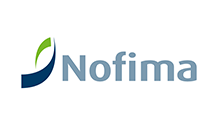
Nofima AS
Nofima is a leading food research institute that conducts research and development within the fields of aquaculture, fisheries and food. Our largest owner is The Ministry of Trade, Industry and Fisheries in Norway. We have 397 employees with 42 different nationalities. 165 of these have a doctorate degree. 2022 turnover was NOK 707 million.
Role in the project: Nofima is the project coordinator and leads Workpackage 2 (Business solutions for shelf life prediction and labelling). Nofima will be involved in all technical workpackages (WP2 prediction&labelling, WP3 food cultures, WP4 packaging systems), as well as the WP5 (sustainability) and WP7 (dissemination) and will particularly be responsible for the project and data management, facilitation of the innovation process, establishing and aligning microbial and consumer analyses, and the stakeholder dialogue.
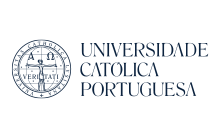
Universidade Católica Portuguesa
Universidade Católica Portuguesa (UCP) is a research university characterized by a humanist vision committed to contribute to knowledge and to the well-being of society. UCP is committed to fundamental research, being recognized for the social impact of its research agenda and for its contribution to the formulation of policy. Research at UCP is organized into R&D Units, following the National Scientific System implemented by the FCT. Within this model, UCP has been successful in guaranteeing competitive national funding for its units, boasting an Associate Laboratory (CBQF) and several R&D Units recognized with the Excellence Seal by the competitive international FCT evaluation. CBQF is located i Porto in a state-of-the-art facility that includes research dedicated laboratories and Scientific Platforms on Analytical Chemistry; Tissue Culture; Molecular Biology; Packaging & Materials; Consumer & Sensory Science; Bioactives; Biophysics and Technology Hall; Kitchen Lab. CBQF integrates +250 researchers (117 with a PhD and +75 PhD students).
Role in the project: UCP is leading WP4 – Packaging for sustainable food systems and is also engaged in other WPs with a main role in WP3 – Microbiome-based protection for optimized food quality and safety.

Oulu University of Applied Sciences
Oulu University of Applied Sciences (Oamk) is a multidisciplinary and international higher education community of 9,000 students and approximately 460 employees. Our close cooperation with companies and communities creates the basis for our students’ high-level and up-to-date competence. The cornerstones of our operations are transparency, sustainability and effectiveness. The focus areas of our research, development and innovation activities are low-carbon initiatives, digital solutions and business development.
Role in the project: Working in the WP2 participating in the demonstration of use of dynamic smart labels for monitoring shelf-life, designing and developing new or improved solutions and identifying, sourcing, evaluating, developing, and testing suitable sensor technologies.
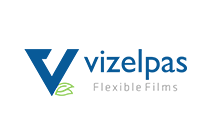
VIZELPAS FLEXIBLE FILMS S.A.
Working since 1996 in the north of Portugal, Vizelpas SA stands out in the flexible packaging market as a company of excellence in the production of flexible technical films suitable for the food and medical-surgical industries. Vizelpas currently has a covered area of 15,000 sqm, with 210 dynamic employees, and state-of-the-art industrial equipment to adequately respond to the constant challenges of the markets and the customers’ expectations. The company also has a fully equipped laboratory that monitors and supports the company’s entire industrial activity and assists in the development of new products.
Role in the project: Working in the WP4 (Work package 4) with the leadership of Catholic University from Portugal we have the mission and objective of developing more sustainable plastics, that allow us to increase the self-life food, and reduce their waste. For this purpose, several alternatives will be tested, such as the inclusion of microbiomes in plastic films, minimizing film production processes, and optimizing the concepts of single product and single layer.
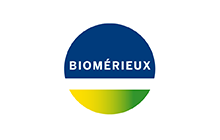
bioMérieux SA
A world leader in the field of in vitro diagnostics since 1963, bioMérieux is present in 45 countries and serves more than 160 countries with the support of a large network of distributors. In 2022, revenues reached €3.6 billion, with over 90% of sales outside of France.
bioMérieux provides diagnostic solutions (systems, reagents, software and services) which determine the source of disease and contamination to improve patient health and ensure consumer safety. Its products are mainly used for diagnosing infectious diseases. They are also used for detecting microorganisms in agri-food, pharmaceutical and cosmetic products.
Role in the project: Within WP4, bioMérieux will support food manufacturers in two different ways to better estimate the actual shelf-life of their products. We will be developing rapid, molecular diagnostic assays for the early detection of spoilage organisms in chicken and salmon to help food industries take corrective action in an earlier stage. Additionally, we will support the University of Denmark with our data modeling expertise in the generation of digital twins for chicken and salmon food items which will allow a more accurate prediction of the shelf-life of these products.
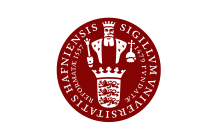
University of Copenhagen
Department of Food Science at University of Copenhagen research and teach all aspects of food, including production, safety, nutrition, consumer acceptance, sustainability etc.
Role in the project: In WP2 Computational modelling of shelflife using combinations of mashine learning and mechanistic models. In WP5 System level environmental, social and economic cost-benefit analysis of MICROORC market entry scenarios using a mixed-method multi-criteria asessment approach.
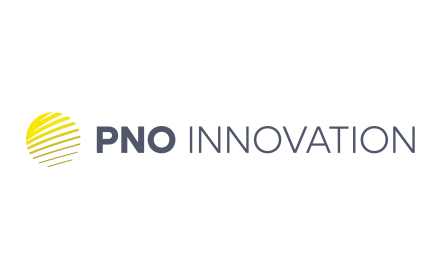
PNO INNOVATION Italy
The PNO INNOVATION, established in 1984, is a European group, made up of a pool of more than 400 professionals across 9 Member States. Every year, PNO supports more than 3.000 clients in their R&D processes, realizing original data-driven and expert-driven analysis and creating over 300 cutting-edge R&D projects – changing the world for the better. PNO has drafted and successfully executed dissemination and exploitation plans of a great number of European projects in various sectors. In this project, PNO INNOVATION is represented by PNO INNOVATION Italy, the Italian branch of PNO, specialized in R&D Advisory, Innovation Management and funding procurement, providing consultancy services to private and public organizations.
Role in the project: PNO INNOVATION is the leader of Work Package 7, Stakeholder outreach, communication, dissemination and exploitation, to design and execute Communication, Dissemination and Exploitation to maximize the micrOOrc results and impacts.

RISE - Research Institutes of Sweden AB
Through our international collaboration programmes with academia, industry, and the public sector, we ensure the competitiveness of the Swedish business community on an international level and contribute to a sustainable society. Our 2,800 employees support and promote all manner of innovative processes, and our roughly 100 testbeds and demonstration facilities are instrumental in developing the future-proofing of products, technologies, and services. RISE Research Institutes of Sweden is fully owned by the Swedish state.
Role in the project: RISE is engaged in Work Package 5 regarding Life Cycle Analysis. RISE is also the leader of Work Package 6. In this Work Package we will explore the legal challenges of the project.

University of Veterinary Medicine Budapest
The University of Veterinary Medicine Budapest is the only veterinary school in Hungary and has an uninterrupted teaching record for more than two centuries, being established in 1787. Besides UVMB’s accredited educational programmes in veterinary medicine and biology, it operates 31 research groups dealing with a wide spectrum of topics, including public health, food safety, food technology, and food waste management. In the MICROORC project, the Department of Applied Food Science represents UVMB, which has experience in implementing various international projects funded by H2020, Horizon, LIFE, HADEA etc. programmes. The Department’s research activities cover food consumption patterns, consumer behaviour and preferences, food safety risk perception and food waste generation. The experts of the Department also take part in professional forums and panels and support policymaking organisations and legislative development in the European food chain.
Role in the project: Tasks of UVMB are mainly related to the evaluation of consumers’ perceptions and acceptance (WP5), the examination of the legislative environment (WP6), and conducting dialogue with policymakers (WP7).
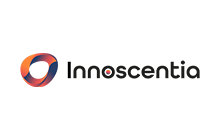
Innoscentia AB
Innoscentia is a Swedish based foodtech company focusing on a pressing issue in the food chain: unnecessary waste. The company is developing sensor-based labels for fresh food to indicate the presence of volatile organic compounds associated with spoilage and thereby being able to communicate the actual food status in real time. Innoscentia is based at the Swedish University of Agriculture in Alnarp and has 5 FTEs as of 2024.
Role in the project: Innoscentia is involved in several workpackages of the project but their main task is to test, optimize and deploy their sensor based labels for shelf life extension.
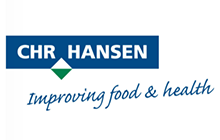
Chr. Hansen AS
Chr. Hansen is a global, differentiated bioscience company that develops natural ingredient solutions for the food, nutritional, pharmaceutical and agricultural industries. At Chr. Hansen we are uniquely positioned to drive positive change through microbial solutions. We have worked for almost 150 years to enable sustainable agriculture, better food, and healthier living for more people around the world. Our microbial and fermentation technology platforms, including our broad and relevant collection of around 50,000 microbial strains, have game-changing potential. Matching customer needs and global trends we continue to unlock the power of good bacteria to respond to global challenges such as food waste, global health and the overuse of antibiotics and pesticides. As one of the world’s most sustainable companies, we touch the lives of more than 1 billion people every day. Driven by our legacy of innovation and curiosity to pioneer science, our purpose – To grow a better world. Naturally. – is at the heart of everything we do.
Role in the project: Chr. Hansen is the leader of the WP3 focusing on developing, prototyping and demonstrating efficacy of microbiome-based solution to improve the shelf life (quality and safety) of fresh chicken, cold smoked salmon and plant-based meat analogues. On the top of the technologist and microbiologist involved in WP3, our experts in sustainability and regulatory will actively participate to WP5 and WP6.
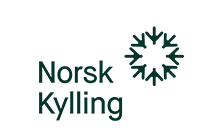
Norsk Kylling AS
Norsk Kylling is a food manufacturer located in Norway, owned by the retailer REMA 1000. The company operates a fully integrated value chain for production of broiler chicken, from parent flocks, hatchery, processing, and to finished poultry products. Norsk Kylling holds a market share of around 30 percent in the Norwegian retail grocery industry. Most of the products are sold under the brands Solvinge and Stange gårdsprodukter. In 2022, Norsk Kylling became the first producer in the world to convert its entire production to ECC (European Chicken Commitment), an animal welfare standard developed and supported by 37 animal organisations globally.
Role in the project: The role of Norsk Kylling is to provide data on the production process of poultry, from farm to finished product. Will also collect environmental samples in the production facility and send both samples and product packages to Nofima for analysis. Involved in WP2 and WP4.
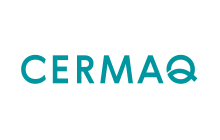
Cermaq Group AS
Cermaq is a leading global salmon producer driving transition of our food system towards healthier and more climate-friendly food. Our approach is transparency, performance, and partnerships, setting ambitious climate goals, innovation for clean farming, and scaling impact and ripple effects through local and global partnerships. Cermaq is a fully owned subsidiary of Mitsubishi Corporation, and has farming operations in Canada, Chile and Norway. Cermaq Norway’s farms are located north of the Arctic circle in Finnmark and Nordland regions. The majority of Cermaq Norway’s salmon are sold in Europe, Asia and North America. Cermaq Norway hold certifications according to food safety and strict environmental standards such as ISO 22000, Global GAP and the Aquaculture Stewardship Council (ASC).
Role in the project: The role of Cermaq Norway is to provide data on the production process of salmon, from farm to fillet. Cermaq will also collect environmental samples in the production facility and send both samples and product packages to Nofima for analysis. Involved in WP2 and WP3.
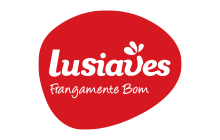
Lusiaves - Indústria e Comércio Agro-Alimentar, SA
Grupo Lusiaves was founded in 1986 and over the years, it has grown to become one of the largest players in the Portuguese poultry sector. With more than 20 companies and 3,500 direct employees, the group has a wide portfolio that spans from breeding to poultry product distribution. The company places emphasis on animal welfare, sustainability, and social responsibility.
Role in the project: The role of Lusiaves is to provide data on the production process of poultry, from farm to finished product. Will also collect environmental samples in the production facility and send both samples and product packages to Universidade Católica Portuguesa for analysis. Lusiaves will also be involved in pilot demonstrations for food cultures and packaging systems.
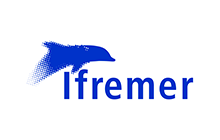
Ifremer - Institut Francais de Recherche pour l'Exploitation de la Mer
Ifremer (French Ocean Research Institute, 1500 employees, 240 M€ annual budget, 24 mainland and overseas locations in France) was created in 1984 and is a public industrial and commercial institution (EPIC). Through research, studies and expert assessments performed on main current socio-economic questions (climate change, marine biodiversity, pollution prevention, sustainable fishery and aquaculture, etc.), Ifremer contributes to increase knowledge about the oceans and their resources, to the monitoring of marine and coastal zones, and to the sustainable development of maritime activities. For these goals, the Institute designs and operates observational, experimental and monitoring tools and facilities.
MICROORC will involve the Laboratory of Microbial Ecosystems and Marine Molecules for Biotechnologies (EM3B) focusing on the characterization, exploitation and promotion of marine bacteria and their biomolecules for application in human food, human health, cosmetic, and environment. EM3B has thirty years of experience in microbiome-based solution to guarantee seafood quality and safety (biopreservation), from fundamental research to application in industry.
Role in the project: In WP3, Ifremer leads task 3.3 on the “development and evaluation of food cultures for cold smoked salmon processing”. He will participate to pilot demonstration in smokehouses from CITPPM. Ifremer will also contribute to WP4 on the validation of new functional packaging in combination with protective cultures.
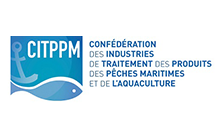
CITPPM - Confédération des Industries de Traitement des Produits des Pêches Maritimes et de l'Aquaculture
CITPPM – Confédération des Industries de Traitement des Produits des Pêches Maritimes et de l’Aquaculture – is the French technical body representing the interests of all fish and aquaculture product processing trades: canned fish, smoked salmon and trout, semi-canned anchovies, cooked shellfish, surimi, seafood delicatessen, salted, smoked and dried fish, frozen products. With a scientific and technical vocation, it provides its expertise to companies in the industry. As a driving force behind applied research, CITPPM coordinates and participates in research programmes aimed at improving food quality and safety. Initiated at the request of the sectors it represents, canned fish, smoked salmon and trout, semi-canned anchovies, these programmes are carried out in collaboration with top-level research bodies, scientific networks and technical centres. CITPPM is a key player in continuous improvement: recognition of the quality of fishery and aquaculture products is one of the main missions of CITPPM, which designs, drafts and promotes reference documents: NF standards, codes of practice, guides to good hygiene practice and professional decisions. Always up to date with the practices of the professionals it represents, CITPPM ensures that these documents are regularly updated. CITPPM is also the main contact for French and European administrations on technical and scientific issues relating to processed fishery and aquaculture products, in conjunction with ADEPALE unions ETF and FIAC. CITPPM monitors products on the market, as the sector’s reference body. It reminds professionals of the practices they defined themselves and implements control and analytical monitoring plans designed to check compliance with the fairness and quality of products on the market. CITPPM also builds and promotes collective databases of self-checking results from professionals, which constitute a reference for the industry and provide greater knowledge of the quality of products from confederated companies.
Role in the project: CITPPM is involved in two work packages of MICROORC: WP3 and WP4.
The role of CITPPM in WP3 is to provide cold smoked salmon to test biopreservation solutions. Three confederated companies of CITPPM producing cold smoked salmon in France will be directly involved in the project to consider the variability of the products, the production environment and the naturally present lactic flora. In WP4, related to sustainable packaging, CITPPM will conduct shelf life trials on cold smoked salmon with new packaging materials: pilot demonstrations for the best packaging prototypes will be performed in industrial scale in a cold smoked salmon smokehouse. The performance of the materials in the filling and closing operations will be characterized.
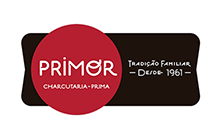
Primor Charcutaria Prima SA
PRIMOR belongs to the Primor Group, a holding company committed to the swine business, from slaughtering, fresh meat cutting, meat processing and trade. PRIMOR itself is one of the largest Portuguese companies in the charcuterie sector, a genuine brand with more than 60 years of experience in producing and trading goods based on cold cooked pork and poultry meat, such as ham, bacon and traditional chorizo. PRIMOR is well known for the quality and diversity of its products, as well as for its constant focus on innovation, craving the launch of new products.
Role in the project: PRIMOR will develop new plant-based meat analogues (“burger” type and sliced cooked meat alternatives) in collaboration with CHA to address the demand for lower footprint food among consumers. PRIMOR is involved in WP3 and WP4.
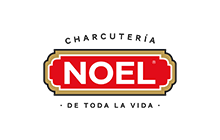
Noel Alimentaria SA
Noel is a fourth-generation family-run food group based in La Garrotxa, Girona. Since beginning over 80 years ago, we’ve geared our activity towards our customers and consumers by offering them the products that best suit their needs, guaranteeing the highest levels of quality and food safety with a constantly innovative philosophy.
As a result, we’re now one of the leading Spanish companies in the meat sector, as well as a benchmark for the industry in general, both at home and abroad, thanks to highly innovative projects that have enabled us to expand our product portfolio and sectors of activity
Role in the project: NOEL will develop new plant-based meat analogues (“burger” type and sliced cooked meat alternatives) in collaboration with CHA to address the demand for lower footprint food among consumers. PRIMOR is involved in WP3 and WP4.
 Funded by the
European Union under Grant Agreement N° 101136248. Views and opinions expressed are however those of the
author(s) only and do not necessarily reflect those of the European Union or REA. Neither the European
Union nor REA can be held responsible for them.
Funded by the
European Union under Grant Agreement N° 101136248. Views and opinions expressed are however those of the
author(s) only and do not necessarily reflect those of the European Union or REA. Neither the European
Union nor REA can be held responsible for them.